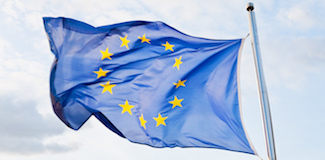Study programme for War & Security in Swansea
The War & Security specialisation focuses on some of the most tangible threats facing journalists, journalism and societies across the globe - a theme that has not become less relevant throughout the years.
War & Security is one of the most practise-centred specialisations in the Mundus Journalism programme. It focusses on drawing in practitioners to offer professional insights into what life as a war correspondent is like, and how professional practice can be developed to ensure that journalists can lead the journey towards peace and resolution.
Through innovative assessment formats, students will be developing scholarly and professional skills in parallel. The courses take in contemporary developments in the field of war, conflict and security reporting. Teaching will take place in cooperation with research centres at Swansea, enabling the inclusion of expert resources within the university specialised in travelling to danger zones, preventing radicalisation, and facing cyber threats.
Reporting Global, Institutional and Individual Risk
Ulrich Beck once wrote that "we are living in a world that is beyond controllability". His central thesis about risk - and those elements of our lives that we cannot control - is central to this course, as it considers how the wide concept of risk - "what might happen" - can be applied to war, conflict and journalism.
Our holistic approach firstly considers a theoretical approach to the concept of risk, and then examines it within national, institutional and individual contexts. First for example, how do we identify risks to national security, and what are these likely to be? We will draw on the most current research on cyberterrorism for example, to examine why this is such a threat, what can be done to mitigate it, and crucially, how these dimensions are reported. On an institutional level, we consider how citizens become radicalised and how institutions respond to the threat posed by a range of extreme groups and organisations. We then consider for example, how universities develop programmes to counteract such threats. Finally, we consider how the concept of risk impacts on individual journalists. Within this last category, we consider the practical and operational risks to safety and well-being, but also ponder the more theoretical and philosophical ways that normative, ethical and moral dimensions apply in particular to those covering conflict.
Digital War
The course critically explores the impact of digital technologies. It explores the uses of digital technology in contemporary conflict, beginning with the 1991 Gulf War which showcased post-Vietnam technology and established a new model of military and media management. It explores how this model was reapplied in Kosovo (1999), Afghanistan (2001) and Iraq (2003) and how, with the Web 2.0 revolution, informational control broke down. A new mode of "participative war" emerged, as seen in Gaza, Iraq and Syria. The course examines recent political events and their digital mediation. It also considers how developments such as Wikileaks, unmanned drones and cyberwar have impacted upon global conflict, explores new developments in state and non-state online informational and troll warfare and considers emerging technologies such as soldier-systems, exo-skeletons, robotics and artificial intelligence and their possible future military impact.
Journalism and Journalists: Conflict, Defence and Resolution
This course takes a wide look at the key themes associated with the reporting of war, conflict and terrorism. Beginning with an overview of the historical evolution of conflict reporting, it moves on to an examination of the geo-political and socio-economic drivers of conflict, and how these might develop from activism and unrest. It considers key definitions differentiating "war" from "terror", and the typologies associated with terrorists, their actions and motivations. We examine the concept of "defence" and defence budgets, and how they are most often reported. Drawing from the lived experience of journalists and the research examining their output, the course then covers the key elements associated with conflict journalism such as embeddedness, taste, censorship, emotion and examines the use and impacts of different journalistic forms and styles. Finally, the course covers elements such as remembrance and examines in more depth the validity, practice and critique of new journalistic paradigms such as "peace journalism".
Master's Thesis
Writing the thesis provides the opportunity to choose a subtheme/region/theory within the wider field of journalism, war and conflict and to produce an original piece of empirical work. Working in conjunction with an academic supervisor, students are schooled in philosophical and epistemological approaches to media research, and are taught practical skills to enable efficient, ethical data collection and insightful and pertinent analysis. Supervisors may offer the opportunity to fine tune an exceptional thesis, converting it into an article for an international peer-reviewed journal.
